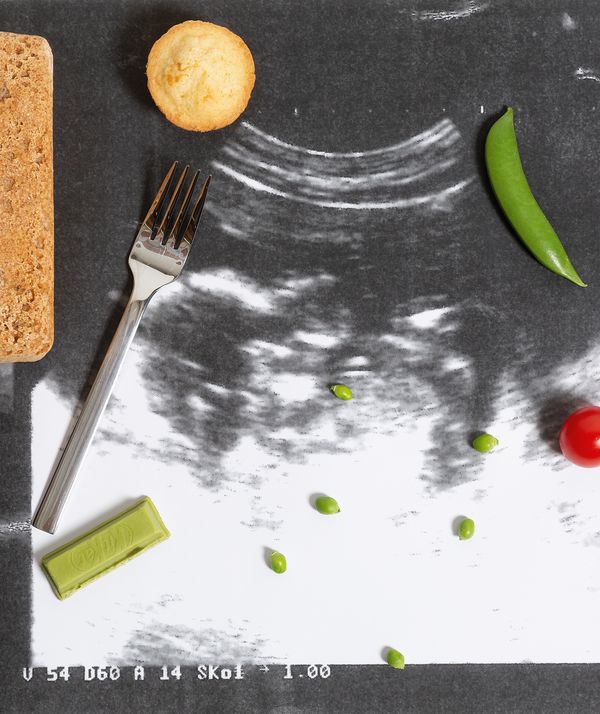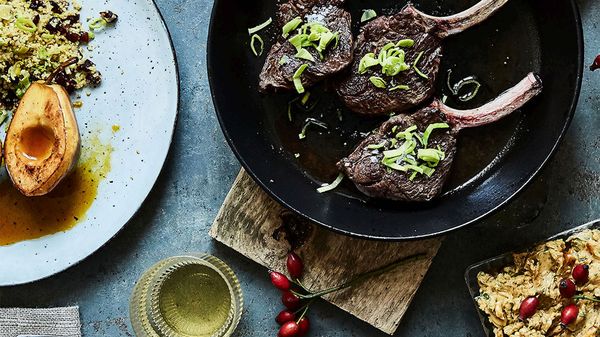After Christmas, I feel ready to burst. I weigh myself. I weigh a full 100 kg – at a height of 1.80 m. Something must be done. But what exactly? I hate diets. Which is why I turned to 23&me, a Google subsidiary, by sending the laboratory-diagnostics company a sample of my saliva, carefully packaged in a plastic tube. (By the way: 33% of all search queries on the subject of “weight loss” are carried out by men.) The price, including express delivery: $150.

I’ve never had a problem with my weight. Or so I like to think. But maybe I could lose a little weight without cutting down on what I eat if I just listened to my genes. A test. By Philipp Kohlhoefer
Eat better with the GENCODE
I’m doing this because there’s this thing called nutrigenetics, a relatively new field that explores how each of us absorbs and processes nutrients. After all, some people eat pizza and fries their whole life but still stay slim and live until they are ancient, while others eat more raw vegetables than a rabbit only to die of a heart attack while they’re still young. Because my body processes caffeine quickly, I can drink litres of coffee and sleep for hours straight afterwards. Which makes me more the exception than the rule. This shows that one and the same thing can have completely different effects depending on your predisposition.

Personalised nutrition
Or, in scientific terms: “On the basis of a multivariate genetic model analysis, a variance of 59% was calculated from twin studies into the correlation between genotype and the probability of suffering from adiposity, and one of 41% for that between environmental factors and these illnesses.” That means: whether or not we are fat is sixty per cent down to our genes. An EU-financed research project called Food4Me discovered this, involving seven European countries, 1,200 participants and 25 research institutes. A large-scale study, a first field test on the topic of personalised nutrition: because a diet that works for everyone might exist between the covers of women’s magazines but certainly not in reality.
The GENCODE of my ancestors
My personal field study starts six weeks later. I have 315 parts Neanderthal in my DNA, more than 95% of all participants. My haplogroup on my mother’s side is K1c1, which makes me a (partial) relative of Ötzi. On my father’s side, it’s R-P278.2, which makes it very likely that I descend from the horse-mounted hordes around the Caspian Sea. I discover that my relatives domesticated horses around six millennia ago (I hate riding). Which leads to the conclusion: I am no devourer of carbohydrates but, on the contrary, need to cut down on them in favour of protein and fat if I want to lose weight.

Relevant information?
But there’s just one problem. The raw data are utterly meaningless to me. Apart from a little small talk at the next party, there’s not much I can do with them. On the other hand: it’s nice to know that my not sneezing when eating dark chocolate is probably down to gene mutation rs11213819.
Not yet an alternative
I have to turn to someone else, a German service provider. They, however, immediately warn that “Our programme incorporates genetics as a supplementary building block within the framework of a regular weight-loss programme.” In other words: nothing can be proven, so better stick to a conventional approach. That explains why this programme also includes advisors in gyms and why diet shakes are sold in the course of a “gene diet check” – which is a bit odd because you have to do more to achieve less.

The most impersonal personal plan
I get them to produce a diet plan for me nonetheless. I find out that the combination of strength and endurance help me to burn calories – I need to jog and go to the gym. I should be eating fruit and vegetables, especially spinach, as I could have a problem with folic acid. Or perhaps not. One way or the other, I’ve never noticed. Yoghurt is also good for weight loss, but bread isn’t. Perhaps that means more often eggs and bacon for breakfast, and bread rolls with jam only on special occasions. I knew all of that already. It’s the most impersonal personal plan in the world.
I lost weight in a conventional way
It may be the case that we cannot look forward to a gene-based diet in the near future, but that will presumably change at some point. Nutrigenetics is only in its infancy. Until then, we’ll have to satisfy ourselves with what we know already: a balanced diet, less processed food, plenty of exercise and eating slowly. On the subject of which: I gave a traditional diet a go, namely eating less. Of everything. On top of that, chin-ups and press-ups in the morning, boxing four times per week, yoga once weekly.
I lost eight kilos. In six weeks. What can I say? I’m related to Ötzi.


